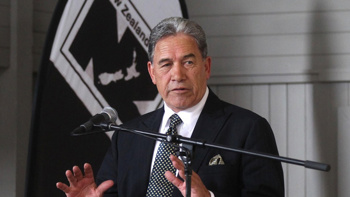
One of six victims who allegedly lost a combined $1.25 million to international scammers via a Whanganui “money mule” claims ASB failed to detect serious and repeated money laundering by its customer and in her view should compensate duped investors.
A banking expert agrees questions need to be asked of ASB’s duty of care. Other victims are calling for the Reserve Bank to investigate whether the Australian-owned financial company - which made $1.5 billion in profits last year - properly monitored its customer’s account activity and if anti-money laundering regulations have been breached.
However, ASB says it has stringent anti-money laundering and customer verification processes and is confident “our customer due diligence and ongoing account monitoring procedures are robust”.
The Taranaki widow, who asked not to be identified, alleges she was tricked into wiring $100,000 of her retirement savings in April in the belief she was investing in a Citibank bond scheme backed by the Commonwealth Bank of Australia.
She thought the recipient ASB account had been set up under her own name, but later learned it was an elaborate ruse and the “investment advisor” she’d been speaking to was actually a scammer.
She had been dealing with the emotional fallout of a family tragedy at the time - her second in recent years.
The scammer was extremely skilled and convincing. She now feels “embarrassed and stupid”.
“He had answers for everything. There was absolutely no hesitation. That’s how good he was.”
Her own bank, ANZ, did not flag the large internet banking transfer as suspicious. ANZ has refused liability and declined to reimburse the stolen cash, arguing she authorised the transaction.
“While we understand this is not the outcome the customer was hoping for, we don’t believe our fraud detection measures can reasonably be expected to have flagged the payment as suspicious in this case,” ANZ said
However, the woman believes both banks should have detected her money transfer - marked as “Citi via ASB” - as suspicious and asked further questions, particularly given the FMA issued a Citibank scam warning in July last year.
“Could they not have an algorithm or something that alerts them?
In her opinion: “Some kind of red flags should have been raised.”
The money was allegedly washed through a Whanganui man’s ASB account before being transferred offshore before the scam was detected, meaning nothing could be recovered.
The Herald is aware of at least five other victims who appear to be connected to the same accused ASB mule. They lost a combined $1.25m within the space of just one month.
/cloudfront-ap-southeast-2.images.arcpublishing.com/nzme/JNWXPMC2EBBNZL6UZ6N647PCTY.jpg) Jo Hurley lost $350,000 in the same Citibank-branded investment scam while her husband Jayson was gravely ill in critical care. Photo / Bevan Conley
Jo Hurley lost $350,000 in the same Citibank-branded investment scam while her husband Jayson was gravely ill in critical care. Photo / Bevan Conley
The man has now been charged with five counts of money laundering totalling nearly $1m. The sixth victim did not want to proceed with a formal police complaint.
One of the six victims, Whangarei health worker Borja Ares, lost his family’s $330,000 life savings in the same scam in May.
He is also critical of ASB and believes the company should accept liability.
Ares said he thought it was extraordinary that ASB’s algorithms and fraud detection systems did not flag any of the incoming or outgoing transactions as suspicious and freeze the man’s account.
Though Ares was the last of the victims to lose money, he understands he was the first to go to police and believes his report alerted ASB to the fraud, not the bank’s own detection systems.
“I absolutely can’t believe this person was able to receive in a month $1.25m and send it overseas straight away and no red flags were raised.
“In my view, ASB should have realised there was something odd happening, immediately frozen the account and researched what was happening.”
He believed banks were not taking anti-money obligations seriously enough and faced little consequences if the rules were breached.
/cloudfront-ap-southeast-2.images.arcpublishing.com/nzme/67PQLTIV5DXLOYB5OVYHRDQAJY.jpg) Claire Matthews is an associate professor at Massey University business school. Photo / Supplied
Claire Matthews is an associate professor at Massey University business school. Photo / Supplied
Massey University banking expert associate professor Claire Matthews agreed questions should be asked of ASB as to whether it carried out proper due diligence, given the number of victims allegedly linked to the mule.
“It’s a matter of understanding what would have alerted them [to the suspect transactions].
“In hindsight, there’s a lot of things that look obvious, but it’s a matter of what could you have actually picked up in advance.”
ASB is defending its actions, saying it takes fighting fraud seriously and has invested heavily in anti-fraud systems.
The bank refused to answer specific questions about why multiple suspect transactions to and from the Whanganui account went undetected, how it was alerted to the frauds and whether it would accept liability for the victims’ losses.
“As this is an ongoing police matter, we are limited in the information we can share.”
If ASB suspected a customer was a mule in a fraud it generally froze the funds and supported police investigations. The bank would close the account if the customer was believed to be complicit.
“In confirmed cases of fraud, we will place a hold on any remaining funds and immediately request the return of money. However, it is often the case that money has been quickly transferred to offshore bank(s).”
ASB said it followed stringent anti-money laundering and customer verification processes when opening new accounts and was confident its customer due diligence and account monitoring procedures were robust.
“And while our systems are protecting more customers from increasingly complex scams, customer vigilance, supported by a collective response and education efforts from banks, police, telcos, government and social media companies, is the best way to keep New Zealanders safe.”
An ANZ spokeswoman said the Taranaki woman’s payment was initiated and authorised by her via internet banking and was within the payment limit on her account. The transfer was made to a valid New Zealand bank account.
ANZ sympathised with scam victims and urged customers to be vigilant when looking online for investment opportunities.
The Reserve Bank is responsible for monitoring banks’ compliance with anti-money laundering rules and taking enforcement action.
A spokesman would not confirm whether the Reserve Bank was looking into ASB, but said it monitored banks through regular on-site visits and interviews, and that banks were required to report suspicious activity.
The rise in scams and fraud activity was causing “real pain” for victims.
“We are committed to working with our Council of Financial Regulator partners to raise scam awareness and tighten the regulatory net around this activity within our respective remits.”
The ASB case follows that of an Auckland woman who allegedly used her ANZ account to steal cash from up to nine scam victims before the elaborate fraud was detected. She is yet to be arrested and there are calls for ANZ to reimburse victims.
Take your Radio, Podcasts and Music with you









